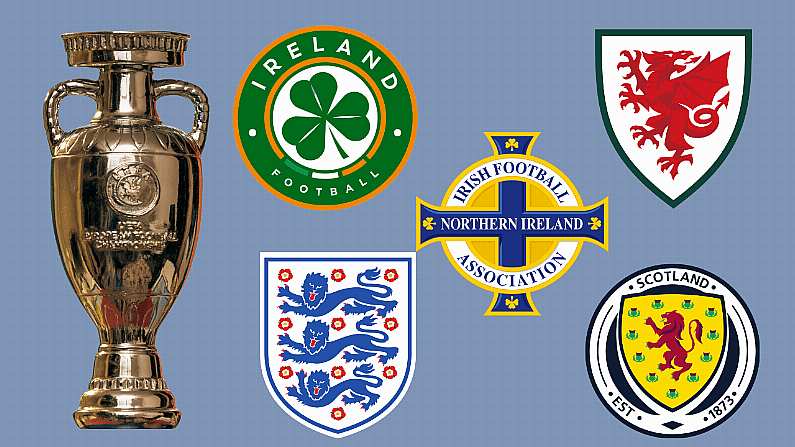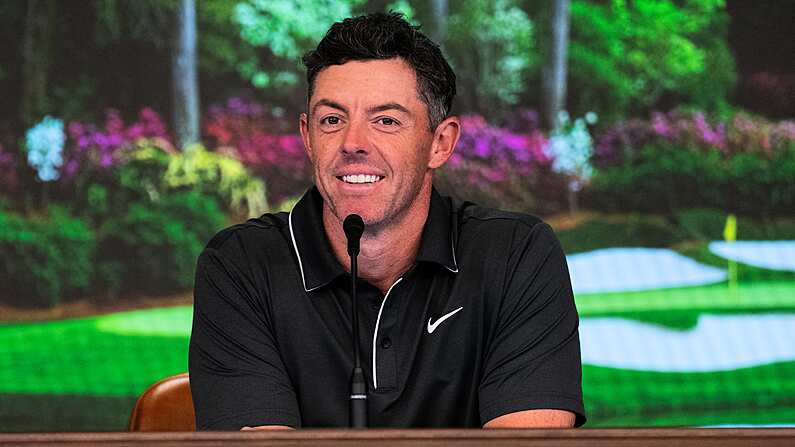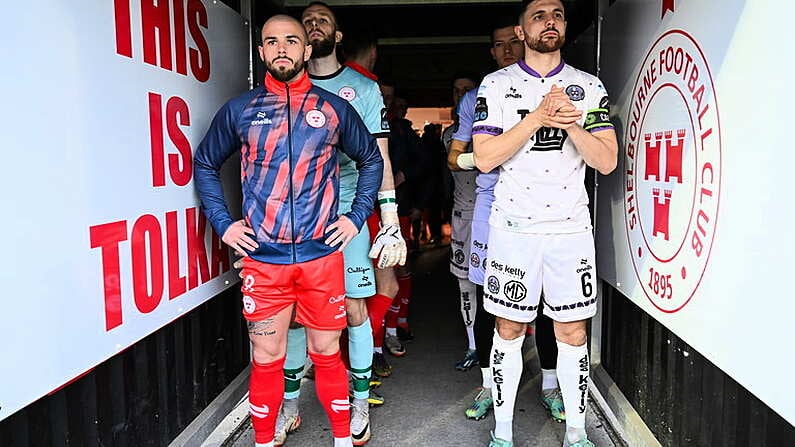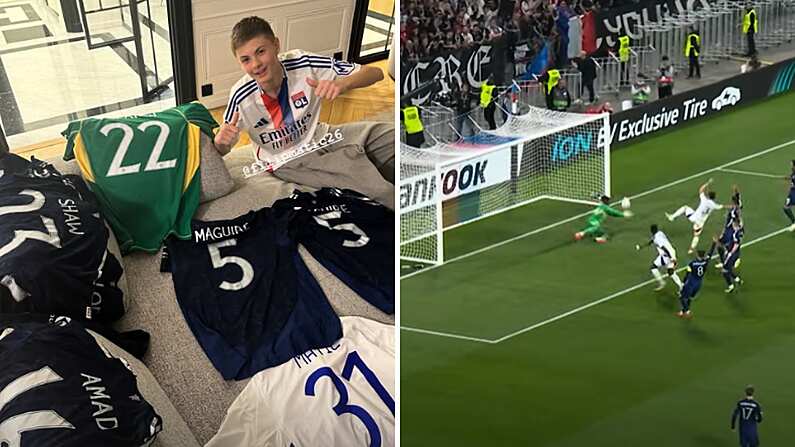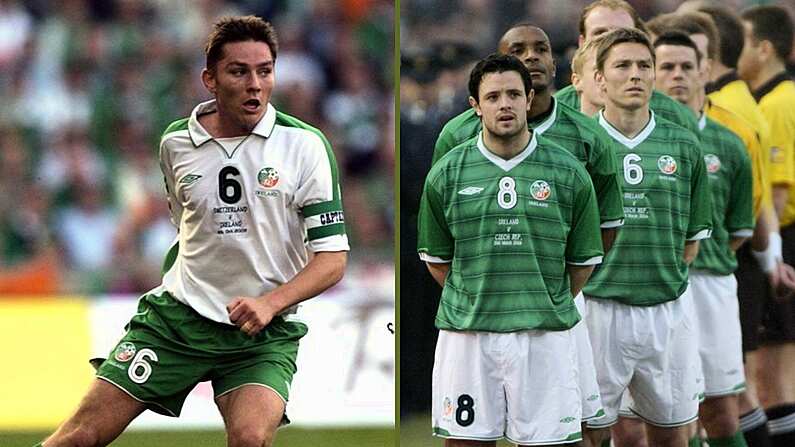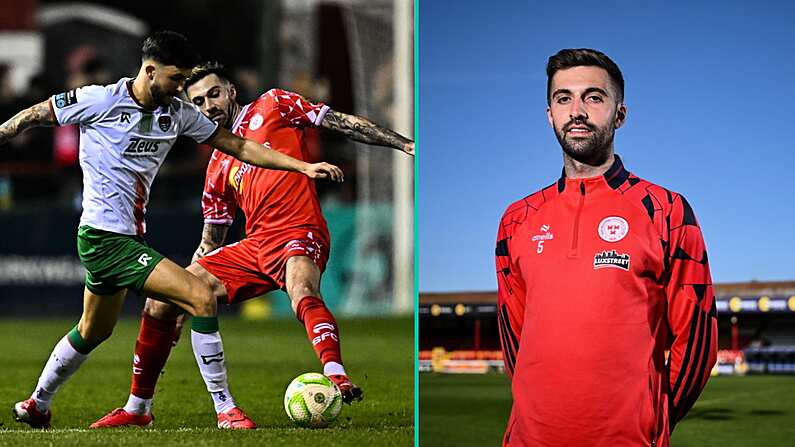Irish football fans had cause to celebrate on Tuesday morning, with confirmation from a UEFA conference in Nyon that the Republic of Ireland and the UK will co-host Euro 2028.
Games will be held in Dublin and Belfast as part of the tournament, with the final set to be held in Wembley once again.
Of course, this is not the first occasion Ireland have been involved in a Euros bid.
They failed in their attempts to co-host the tournament alongside Scotland in 2008, while Covid restrictions meant that the four Euro 2020 games scheduled for the Aviva Stadium were moved elsewhere. At long last, we will finally see a major tournament visit these shores in 2028.
While Ireland's chances of qualifying for Euro 2024 look rather slim at the moment, there is a bit more optimism that the team will play a big part in the following edition of the tournament in 2028, especially Tuesday's confirmation that they will co-host alongside England, Wales, Scotland, and Northern Ireland.
The major question which now comes to mind for fans of all five countries is how qualification will work for the tournament and, if the proposed format hinted at by FAI president Jonathan Hill is anything to go by, it could work out well for Ireland.
READ HERE: 2023/24 Europa League Final: Aviva Stadium, Tickets, Key Dates
READ HERE: Report: John O'Shea Set To Join Wayne Rooney At Birmingham City
READ HERE: Robbie Keane Was Forced To Flee Israel After Hamas Attack
Potential Euro 2028 qualifying format would be good news for Ireland
In major tournaments, it is normally expected that the host nation will qualify automatically. However, considering there are five teams involved in the 2028 Euro bid, there remains some uncertainty as to who will need to qualify on this occasion.
It has been said that UEFA will offer a maximum of two automatic qualifying spots, although there had been no indication as to how they would be granted.
Some speculated that England would be given one of them as they will host the most games at the tournament, with Ireland next in line as the nation that will host the second highest amount of fixtures.
However, an alternative theory has come from within the FAI.
Speaking at FAI headquarters in September, FAI CEO Jonathan Hill said that while there has been no confirmation as to how many hosts would automatically qualify for the tournament, he would guess that it will look something like this:
That is a decision for UEFA. Depending on whether or not we're successful in our bid, and obviously I say that because I don't know until October 10th, we will then find out what the qualification process will be...
My guess would be that for a tournament that may be hosted by, all of the teams will be part of the qualification process. If you're asking my personal view, I think that's important from a commercial perspective, that England are part of the qualification process.
Then there are different ways you can address the issue of, I hope and believe, it will be two teams that will automatically qualify.
It then becomes a conversation with UEFA over how that works when all five teams have gone into the qualification process. I can't go any further than that, but it will be up to UEFA how that might work...
There could be (two spots reserved for host nations that don't qualify), that could be a route where UEFA will look.
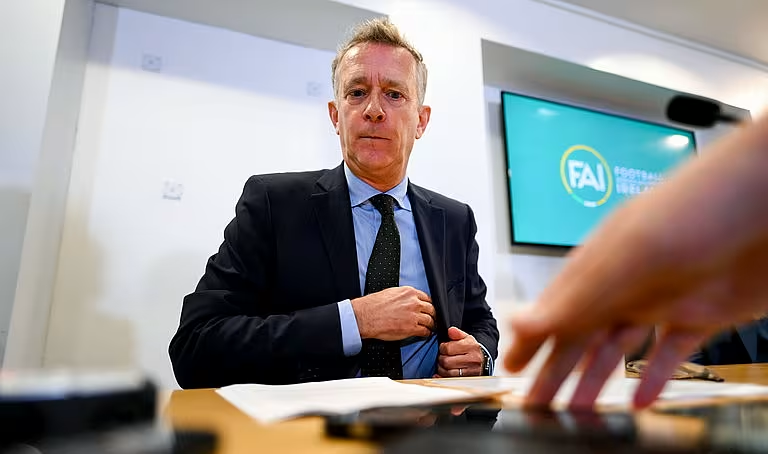
READ HERE: These Are The Irish Footballers Who've Received Ballon D'Or Votes
In other words, Hill's best guess on how the process will work will see all five host nations go through the qualification process as normal. However, those who fail to qualify this route could then be given an automatic spot in the tournament.
For example, if England and Scotland qualify via the qualifying groups, two of Ireland, Wales, and Northern Ireland would then be given the two automatic spots in the tournament. If three nations qualify via the groups, all five host nations would play at the tournament.
It remains to be seen how the two spots would be decided upon if three of the nations did not qualify in the traditional way, although it has been suggested this could be done based on FIFA or UEFA rankings.
Hill would go on to say that he expects six games to be played at the Aviva Stadium during the tournament.
The FAI CEO would follow up on his comments after the confirmation of the hosting arrangements on Tuesday morning. Speaking to RTÉ at the announcement in Nyon, Jonathan Hill said that the five candidates were awaiting clarification from UEFA on how many automatic qualification spots would be afforded to hosts.
FAI chief executive Jonathan Hill chats to @DaveKelly4 in Nyon, regarding co-hosting Euro 2028
⚽ Wants legacy felt before tournament, not just after
⚽ Awaiting UEFA clarity on qualification spots for hosts
⚽ Says Republic of Ireland will play at Aviva Stadium if they qualify pic.twitter.com/OY5O4EMkUS— RTÉ Soccer (@RTEsoccer) October 10, 2023
One of the major questions was also answered by Hill as he confirmed that, should Ireland qualify for the tournament, they will play their games in Dublin.
Hill said:
We know that [qualification] is a question everyone will be asking. It's actually one for UEFA to consider.
We've put forward a proposal as part of the overall bid - we're really hopeful from a sporting perspective that we will qualify directly for the tournament as one of the 24 teams. But it's up to UEFA to decide how they will approach the two automatic slots for the 24 teams who will qualify.
We'll await what UEFA will say in relation to that.
Four group games, a last-16 game, and a quarter-final [will be in Dublin]. A really exciting thing is if the team does qualify...we will be playing all of our games in our national stadium.
That's really exciting - not just for the current crop of players, who are looking forward now to taking part in EURO 2028, but also all of the fans and all of those kids who are dreaming about being one of those players as well. That will be one of the real benefits from today.
Of course, this would all be a welcome development for Ireland.
It would give the nation a safety net in the event that they failed to finish in the top two of their qualifying group. With England all but certain to qualify, and Scotland steadily improving, you would imagine that at least two of the five teams would not need one of the automatic qualifying spots.
It would be a huge embarrassment were Ireland not part of Euro 2028, as the country hosts a major international tournament for the first time ever. This move would make that prospect a bit more unlikely.


